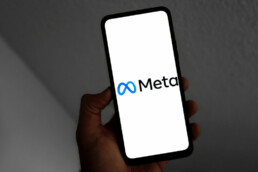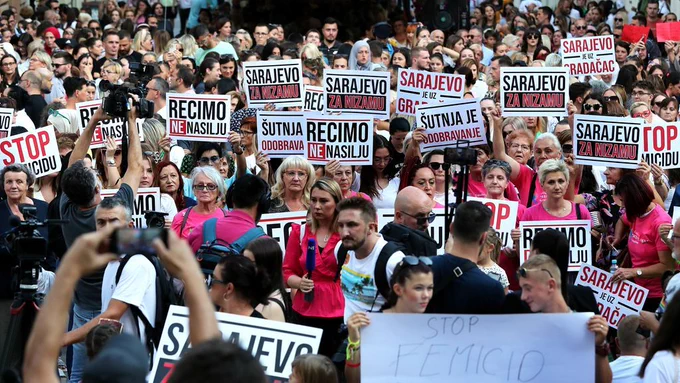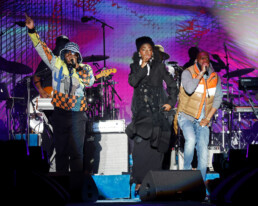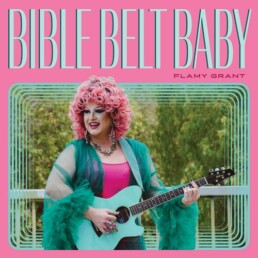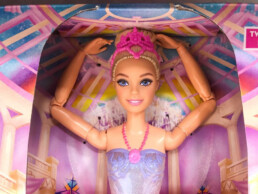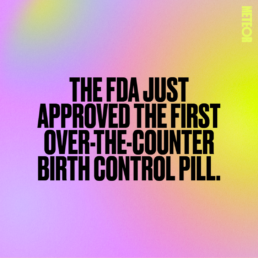Gold Medals and Sexual Harassment
|
Evening, Meteor readers, It was a wise philosopher (Aaliyah) who once said, “If at first you don’t succeed, dust yourself off and try again”—and that’s apparently the advice Joe Biden is following with his new SAVE program, which aims to limit interest-rate accrual on student loans and improve some existing repayment plans. I’ll give him an A for effort and an I for execution. What’s the I stand for, you ask? *I* am not paying back these loans in this lifetime.  In today’s newsletter we dig into the full story on The Kiss during the Women’s World Cup trophy ceremony, a change to abortion restrictions in Texas, and a little bit of good news. Consensual xoxo, Shannon Melero  WHAT'S GOING ON“It started out with a kiss, how did it end up like this”: On Sunday afternoon, Luis Rubiales, president of the Royal Spanish Football Federation (REFF) had the honor of handing out gold medals to Spain’s women’s national team after their World Cup win over England. But what should have been a proud and beautiful moment for all the women of La Roja (the team’s nickname) turned into an international debacle when Rubiales grabbed team captain Jennifer Hermoso by the back of her neck and kissed her on the mouth. He then proceeded to smack her on the bottom—all while cameras rolled. As if that wasn’t enough, Rubiales later entered the women’s locker room and joked to the team that they were all invited to his wedding with Hermoso. In a social media video, Hermoso said of the moment, “¿Qué hago yo? Mírame…No me ha gustado.” What do I do? Look at me…I didn’t like it. After the moment became an international story, though, Hermoso downplayed the incident, saying, “It was a natural gesture of affection and gratitude.” But it wasn’t just a gesture. Not only did it read like sexual harassment in real time, the “kiss” is also symptomatic of much deeper issues which have been plaguing La Roja and the REFF for years. JENNIFER HERMOSO DOING THE ONLY KIND OF KISSING WE WANT TO SEE AT A MEDAL CEREMONY. (IMAGE BY ALEX PANTLING VIA GETTY IMAGES) In the lead up to the World Cup, 15 of the best players in Spain who had mostly been expected to play on the national team withdrew themselves from consideration in protest of the way the REFF, led by Rubiales, and coach Jorge Vidal had been treating them. The players—who became known in Spain as Las 15—sent an email accusing Vidal of creating an oppressive work environment and highlighting the ways in which the REFF had provided subpar training facilities which they believed had led to injury. (A familiar accusation, also present in the 2020 lawsuit between the USWNT and the US Soccer Federation.) For their part, Las 15 wanted to resolve the issues internally. But in an effort to control the narrative, Rubiales went public with the email and, according to some players, willfully misconstrued what was written in an effort to paint Las 15 as merely disgruntled athletes. All of this behind-the-scenes tension is what makes The Kiss more than just an act of celebration gone wrong. Rubiales holds the fate of Hermoso’s career in his hands. If she wants to continue being a part of the national team, not only does she need to perform at an elite level, she needs, as a huge sports star in Spain, to be a peacemaker between the REFF and the players. After two days of pressure from fans and Spain’s minister of culture and sport, Rubiales issued a halfpology in which he acknowledged the kiss as a “mistake” and then followed it up with, “Here we saw it as something natural and normal. But on the outside it has caused a stir, because people have felt hurt by it, so I have to apologize; there's no alternative.” He basically hit the world with a “sorry you feel that way” and kept moving. This World Cup win is Spain’s first and it’s the kind of accolade the players desperately need to further fuel their fight for equal treatment. It took the US Women’s National Team toiling for 20 years for their federation to start listening to them and they didn’t even see the fruits of that labor until their fourth World Cup win. Here’s hoping we see a faster turnaround for Spain—and all the other women’s teams around the world battling for respect. AND:
 HAVEN'T SIGNED UP FOR OUR AMBASSADOR PROGRAM? JUST CLICK THE LINK ABOVE TO GET YOUR UNIQUE SHARE CODE AND START EARNING POINTS TOWARD MERCH!  TELL ME SOMETHIN' GOODHappy news exists! Today’s proof:
 FOLLOW THE METEOR Thank you for reading The Meteor! Got this from a friend? Subscribe using their unique share code or snag your own copy, sent Tuesdays and Thursdays.
|
![]()
A Livestreamed Femicide in Bosnia
|
Hey there, Meteor readers, I hope you’re getting pumped up for the World Cup finals this Sunday between Spain and England, or, as my husband calls it, Our Original Colonizers versus Our Second Colonizers. I’m rooting for England—but no matter who gets the trophy, the real winners are the record-breaking seven-million-plus viewers who have tuned in to watch women make history.  In today’s newsletter we look at a femicide in Bosnia, check in on Moms for Liberty, and offer up some weekend reading. English for a day, Shannon Melero PS: We’re going to SXSW next spring to have a desperately needed conversation about the state of feminist media. Vote for our panel and leave a comment about what you’d like us to talk about!  WHAT'S GOING ON“We won’t live in fear”: Last Friday, a man in Bosnia went live on his Instagram and shot his former partner, Nizama Hećimović, at point-blank range in the presence of her nine-month-old baby. Over 12,000 people watched the video. Hećimović had filed a restraining order against him just a few days earlier. After broadcasting her murder, the gunman went on to kill two more people, filming his actions all the while before taking his own life. It would be hours before authorities got in touch with Meta to have the footage taken down—but not before it was duplicated and reposted across the internet. As shocking and horrific as this crime is, violence against women has become commonplace in Bosnia. A report on human rights practices in Bosnia and Herzegovina found that “48 percent of women and girls older than 15 suffered some form of gender-based violence” in 2020 and a majority of women—84 percent—didn’t report acts of violence to the police. But Hećimović had reported the harassment by her ex, who had a criminal record. Not only were officials not able to protect her, the Prime Minister had the gall to say in response to her murder that “situations like this cannot be predicted.” Except for when they can. This week, thousands of Bosnians across the country took to the streets in protest, demanding that more be done to protect women from violence, harassment, and femicide. More than that, Bosnians are putting more pressure on Meta to explain how exactly a man was able to live stream three murders before having his account shut down. PROTESTORS IN SARAJEVO, BOSNIA (SCREENSHOT VIA TWITTER) AND:
 HAVEN'T SIGNED UP FOR OUR AMBASSADOR PROGRAM? JUST CLICK THE LINK ABOVE TO GET YOUR UNIQUE SHARE CODE AND START EARNING POINTS TOWARD MERCH!  WEEKEND READS 📚On doing too much: Barbie-mania came for every corner of pop culture, even home renovation shows. Here’s how it all went wrong for one California neighborhood. (The Ringer) Online: Dating apps were all fun and games until they became a hunting ground for “con artists, rapists, and murderers.” (Mother Jones) On education: How natural disasters have decimated math scores for young students in Puerto Rico. (NPR) On “girl” things: Womanhood is being repackaged online. A “blogger girl” explains the trend. (Vox) On Scandoval: Rachel is ready to talk. Again. (The Cut) 
FOLLOW THE METEOR Thank you for reading The Meteor! Got this from a friend? This newsletter was written by Shannon Melero.
|
![]()
A Generation of Women Held Back
|
Dear Meteor readers, Two years ago this week, the United States and Great Britain withdrew troops and diplomatic resources from Afghanistan as the Taliban claimed rule in that country. Since that fateful day in 2021, over 1 million people have fled Afghanistan and some have found themselves displaced, detained, and separated from their families. Many, like Zaki Anwari, died attempting to escape; the devastating images of people hanging from planes while they were taking off remain seared into our minds. Then there are those who stayed or were left behind and have seen their nation impoverished and their rights curtailed. In today’s newsletter, we look at what the last two years have been like for Afghan women and girls—along with that big Trump indictment, some good news in Massachusetts, and more trouble in Texas. With love, Shannon Melero  WHAT'S GOING ON...IN AFGHANISTAN FAMILIES LINE UP TO BE TAKEN OUT OF KABUL THE DAY AFTER THE TALIBAN RETURNED TO POWER. (IMAGE BY MASTER SGT. DONALD R. ALLEN VIA GETTY IMAGES) Not a “comfortable and prosperous” life: In June of this year, Taliban leader Hibatullah Akhundzada shared a message which claimed that “The status of women as a free and dignified human being has been restored and all institutions have been obliged to help women in securing marriage, inheritance and other rights.” But the difference between reality and propaganda is stark. Beginning in early 2022, girls were banned from attending school beyond the 6th grade. As the year rolled on, women were banned from universities, government jobs, non-government jobs, and eventually all public spaces. Women who want to leave their homes are required to wear burqas and must be accompanied by a male relative. If a man isn’t available, as can easily be the case for widows and divorcees, a woman must remain out of sight. The implications of this oppression are far-reaching. Not only are entire generations of women being denied rights, resources, and access to education, but the national economy is suffering as the countries Afghanistan previously relied on for aid have largely withdrawn their money because of the Taliban’s human rights violations. That loss of aid coupled with several years of drought-like conditions has triggered a near-famine in most of the country. Unable to work outside of the home, women are left to starve or resort to extreme measures to survive. Those who attempt to fight back, like the women who protested the banning of beauty salons last month, are met with more violence. And yet the women of Afghanistan continue to fight. A new report from Sky News reveals that some have created “underground” businesses to help themselves and others earn an income. One business owner who started a secret craft shop used the funds from her business to open an underground school for girls; it now services 200 students. “I don't want Afghan girls to forget their knowledge and then, in a few years, we will have another illiterate generation,” she told Sky News. But without proper government infrastructure or international aid, even the most resilient Afghan woman is up against insurmountable odds. So are some of those who managed to escape the country: In the UK, Afghan refugees are now facing homelessness after a program which paid for their hotel stays ended; those who settled in America dealt with a similar housing crisis last year. The road to the “comfortable and prosperous life” that Akhundzada claimed Afghan women already possessed is as of yet uncharted. It certainly cannot be obtained with the Taliban in power, but with no other group remaining to challenge them the Afghan people have been left with few choices. This morning in Kabul, Taliban soldiers celebrated their triumph with a parade. Click here to donate to relief programs in Afghanistan. For more on Afghanistan feel free to revisit our interview with two Afghan journalists, and our talk with Afghanistan Women’s National team captain, Farkhunda Muhtaj.
AND:

FOLLOW THE METEOR Thank you for reading The Meteor! Got this from a friend? This newsletter was written by Shannon Melero and Bailey Wayne Hundl.
|
![]()
The Rhymes That Changed Us
11 Women on Their Hip-Hop Click Moment
By Rebecca Carroll
Hip-hop as a genre is complicated. But at its core, it’s about bearing witness to the world and telling a story directly from that personal vantage point. Whether they be stories of revolutionary rage, tender triumph, sheer joy, or all of the above, the hip-hop canon is undeniably rich. This year marks the 50th anniversary of hip-hop as an art form, and to celebrate, we asked our favorite creatives to share a lyric from one song that impacted them in some profound way.
It could all be so simple
But you’d rather make it hard
Loving you is like a battle
And we both end up with scars
I write to music. I look for songs that open me up to the emotions I’m writing. These lyrics are so deep and gutturally poetic. I put this song on repeat to write the “fourth quarter” of Love and Basketball. I have literally heard it over a thousand times. And it rocks me still. —Gina Prince-Bythewood, filmmaker
And since we all came from a woman
Got our name from a woman and our game from a woman
I wonder why we take from our women
Why we rape our women, do we hate our women?
I spent some time with Pac before this song was written. I was in a black feminist rock group called Subject to Change. He would come to my band rehearsals, and afterwards we would share deep and heavy conversations about the depiction of Black women in Hip Hop. We also talked about the incredible women of The Black Panther Party. My heart expanded when he wrote these powerful lyrics. He was such a beautiful man inside and out. —Cree Summer, actress, singer/songwriter
You ain’t a bitch or a hoe
I've been a hip-hop fan since I was a little girl, but I've always resented how misogynistic the music can be. I didn't have the greatest understanding of why that was when I was small, but I knew that our men were using it to call us mean names and I didn't like that. When I was about nine, Queen Latifah released “U.N.I.T.Y.,” a powerful clapback towards sexism in both hip-hop music and the Black community. I was entranced. Latifah was so strong, so beautiful, and she was standing up for us. It's one of my favorite songs to this day. —Jamilah Lemieux, cultural critic
Hypocrites always wanna play innocent
Always wanna take it to the full-out extent
Always wanna make it seem like good intent
Never wanna face it when it's time for punishment
I know you don't wanna hear my opinion
There come many paths and you must choose one
And if you don't change then the rain soon come
See you might win some, but you just lost one
She is perfect here, and ruthless. —Danyel Smith, author
I push my seed in her bush for life
It's gonna work because I'm pushing it right
If Mary drops my baby girl tonight
I would name her "Rock n' Roll"
— “The Seed,” The Roots ft. Cody Chestnut
When my husband Chris (a former DJ, and a pretty serious hip-hop head) and I were first dating, he made a number of playlists for me. Often I’d listen to them on my own, at the gym or whatever, but one time he made a playlist for me that we listened to for the first time together in the car on our way out of town for a weekend getaway. When “The Seed” by The Roots with Cody Chestnut—which I’d never heard before—came on, I was immediately feeling it. But when I heard this hook, I absolutely fell in love with it (and, to be honest, with Chris). I turned to him and said, “That’s the most beautiful thing I’ve ever heard.” Reader, it is of no small significance that on our first date, before we were even brought menus, I’d told him I wanted to have a baby within the next year or two, and then said, directly, “So what are you looking for in a relationship?” He responded, unrattled, “Why don’t we have dinner first.” He planted the seed in my bush for life 10 months later. We named him Kofi. —Rebecca Carroll, writer and Meteor editor-at-large
Word up, mommy. I love you — Ghostface
I sit and think about
All the times we did without
I always said I wouldn't cry
When I saw tears in your eyes
I understand that daddy's not here now
But some way or somehow, I will always be around — Mary J. Blige
— “All That I Got is You,” Ghostface Killah ft. Mary J. Blige
Ghostface is in my top 10, but this song is easily in my top five. When I hear the raw honesty, vulnerability, love, and pain in his voice, I cry thinking about my three sons. Though Pretty Toney’s circumstances and lived experiences are different from my sons’, I listen and imagine how they are processing their dad’s death, his irrevocable absence, in the quiet hours of the night when they’re in their beds.
Do they cry? Are they angry? Will they heal? What will they remember? Am I enough?
It is excruciating for me to live this life without my husband, my best friend, my greatest love. It pains me to think about my sons navigating this life without their father, the man who loves them most in this world—the person who would have laid down his life for them without thought.
But I hope every day that my sons know I’m doing my best and that I love them with every cell in my body and every beat of my heart. I hope they know I will always, always be around—in this life and the next. And that I will fight beside them to make it through.
Thank you, Ghostface and Mary J., for this prayer. —Kirsten West Savali, VP Content at iOne Digital & cultural critic
Stuntin’ on these bitches out of motherfuckin' spite
Ain't no runnin' up on me, went from nothin' to glory
I ain't tellin' y'all to do it, I'm just tellin' my story
I don't hang with these bitches 'cause these bitches be corny
And I got enough bras, y'all ain't gotta support me
The pressure on your shoulders feel like boulders
When you gotta make sure that everybody straight
Bitches stab you in your back while they smilin' in your face
Talking crazy on your name, trying not to catch a case
I waited my whole life just to shit on ***
Climbed to the top floor, so I can spit on ***
My mom, who has been a preacher in The Bronx my whole life, would regularly tell kids in the congregation, “Great things have come out of The Bronx, so don’t let anyone stop you from doing what you want to do.” She gave me a similar sermon the first time I left home for college, but it was also the first time she went into detail as to all the ways I was about to discover how I was different from the students at my new predominantly white school. When I first heard this song, I felt such a swell of pride—not only because Cardi and I were from the same borough, but because it really captured how I felt about the journey to my own personal “top floor.” Plus it felt good to be honest that I also do certain things purely out of spite for people who told me I’d never get anywhere. —Shannon Melero, writer and Meteor newsletter editor
Yo, my men and my women,
Don't forget about the dean, Sirat al-Mustaqim
Talking out your neck sayin' you're a Christian
A Muslim sleeping with the gin
— “Doo Wop (That Thing),” Lauryn Hill
I remember the first time I heard this song. I was raised Muslim and there weren't any references to my religion in pop culture at the time. I felt so seen to know that an artist, especially Lauryn Hill, knew about Islam. And I was mesmerized by the way she wove it into a song about relationships and self-worth. I listened to the song over and over, and loved hearing it on the radio thinking (and hoping) how many people were noticing those same lyrics. I don't recall the exact moment or song that made me a music head, but putting these words down—this may have been the moment I realized the power of words. —Ayesha Johnson, Meteor director of operations
Pull up in the monster, automobile gangsta
With a bad bitch that came from Sri Lanka
— Nicki Minaj's riff on “Monster”
This lyric always hypes me up if I'm feeling nervous about performing as a DJ or in my work as an activist/advocate. As someone who is from that particular place and does a multiplicity of things that fundamentally, to me, are about care, building power, and creating joy in a world that often doesn't care for BIPOC and queer folks, I like the power of the lyric. It feels like she wrote that specifically for me. —Thanu Yakupitiyage (DJ Ushka), DJ & activist
I put my lifetime in between the paper’s lines
Prodigy’s vivid, cinematic lyricism struck a deep chord in me as a young poet coming of age in the ‘90s and as fate would have it, I later wound up authoring his memoir My Infamous Life with him. This line from “Quiet Storm” encapsulates so much about the power of storytelling—and reminds me of how, at its best, hip-hop transcends boundaries, unites us as a culture and force to be reckoned with, and has made so many poets' dreams literally come true. —Laura Checkoway, filmmaker
We used to fuss when the landlord dissed us
No heat, wonder why Christmas missed us
Birthdays was the worst days
Now we sip champagne when we thirsty
—“Juicy,” The Notorious B.I.G.
In 1996, I went to college a beleaguered student who had gotten into college by the skin of my teeth. I wasn’t a great student, but I had also felt deeply misunderstood and overlooked in my predominantly white suburban school. My life and Biggie’s life were not the same, at all. But his rags-to-riches anthem spoke to me at 18, a young woman of color with a chip on my shoulder and something to prove. His music had such an impact on me that I wrote my senior thesis on how to be a feminist and rap music fan. (tl;dr: my findings were inconclusive) A problematic fave, no doubt, but his music resonates with me to this day. —Samhita Mukhopadhyay, writer and Meteor editorial director
Serving Looks While Serving the Lord
Meet Flamy Grant, the drag queen with a chart-topping Christian music album.
BY BAILEY WAYNE HUNDL
Flamy Grant is a “shame-slaying, hip-swaying, singing-songwriting” drag queen from western North Carolina. Her name is a reference to 90s Christian pop star Amy Grant, and her album Bible Belt Baby centers on her journey as a queer person of faith—which, apparently, some people aren’t too happy about.
On July 26, infamous MAGA pastor Sean Feucht angrily tweeted about Grant, lamenting that “these are truly the last days,” and that Christian music from a drag queen was the “end goal” of the progressive Christian movement.
“End goal?” Grant tweeted back. “Baby, we’re just getting started. 😘”
And she meant what she said. Feucht told Grant that “hardly anyone listens or cares what you do,” so she rallied her fans on social media to get her songs on the Christian music charts. And by the next morning, her album had reached No. 1 on iTunes.
As a drag queen/queer Christian myself, I had to sit down with this diva and get into it all: the drama, the trauma, and what she hopes to give any Christian—both queer and the other kind.
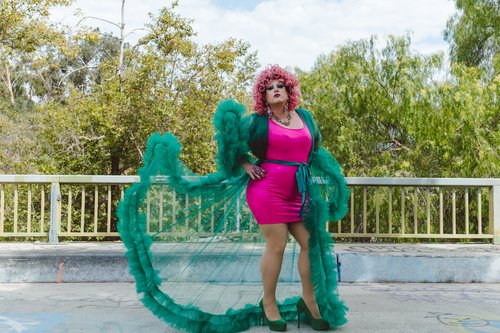
Bailey Wayne Hundl: Over the last ten days, you have been in People, Rolling Stone, Billboard—when you put out your album, did you ever envision something like this happening?
Flamy Grant: Not to this degree. You know, I saw what happened with Semler, a good friend of mine, and they're the first out queer artist to hit number one on the [Christian] iTunes charts. So I knew that it would be a big deal if a drag queen got on the iTunes charts. But I just thought it would be a cool moment of representation. I would've been happy with that, but like, my gosh, to have a Rolling Stone article that I can now point to… It's crazy. It's massive.
When you started doing drag and mixing that with Christian music, was that your intention—to get as many eyes on it as possible?
My intention has been to have a career, so whatever it takes to pay my bills. That's been my intention.
And that's just the first rule of drag. Get your bag.
(laughs) Exactly. Yes. My second purpose and intention is to— I always tell people that I write for queer folks, specifically queer folks who grew up in evangelicalism or other high-demand religions who will resonate to that story of having to unburden yourself of a whole heap of oppression that was dropped on you. And then finding freedom, finding liberation, finding your sparkle.
You’ve been a worship leader in church since high school. What led you to add drag to that?
Well, the pandemic, honestly. I got super into drag in my mid-thirties. I've always been a late bloomer at everything because, you know, religious trauma. I mean, I didn't even come out fully until I was 28. So it took a few more years to really become ingrained in queer culture. So once I fell in love with drag, I was just all about it.
And the pandemic gave me the time. I live [in] this house with some housemates who are also musicians. So we started a livestream, like many artists did during the pandemic, where we would just sing cover songs every Thursday night to, like, 30 people on Facebook. I started showing up to those in drag and really that's where Flamy developed her chops, if you will.
[One day] my pastor asked me to give the sermon in drag…so I made a TikTok video to practice and gave a little [uplifting message] in 60 seconds while I was painting my face. And I woke up the next morning and it had completely blown up and gone viral. And I was floored at the responses: “This makes me feel so seen.” “It makes me feel so safe.”
And that inspired you to release a Christian album.
First of all, my record feels like a spiritual record, and I come from the evangelical world, so why not call it a Christian record? It's telling a spiritual journey. It's speaking to people who are still in the church. It's speaking to people who have oppressed queer people in the church. That's the audience that it's for, really. So it just made sense to put it in the Christian category.
I struggled with that a lot because the word “Christian” is so loaded in America—because it's been co-opted by evangelicals. I always like to make this point: Evangelicalism is a sect of Christianity. It is not representative of the entire faith. What we understand to be mainstream Christianity in America is not actually, like, historically Christian.
https://www.youtube.com/watch?v=feSr8mlljzU
One thing that queer people of faith get asked a lot is, “How do you reconcile these two disparate worlds?” But I'm curious: Why do you continue to reconcile the two worlds?
Well, I mean, first and foremost, I think the main reason is simple: It's representation. I don't see anybody else who's intentionally trying to be a Christian in the [contemporary Christian music] genre, trying to do that as a drag queen in particular.
And then, because I grew up the way I did, I know what it's like to be a kid who has just nothing to look at that looks or feels like me—to feel like you are such an anomaly and to feel like you are such a broken thing.
So knowing that I can be there, present, especially in such a visible way—because that's the thing about drag: It's a very visibly queer art form. You know, we can see a picture of a drag queen, but then if you get to spend 45 minutes with her, listening to her heart…to hear a full record where I'm talking about this stuff…that's gonna make [an impact].
And a good record, too, if you don't mind me saying.
Thank you! I don't mind you saying it at all. You can say it many times. I'm very proud of it.
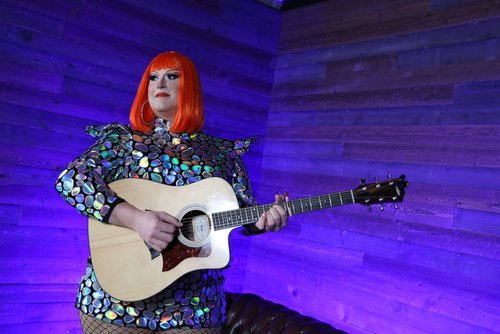
Last question: If you could get just one thing across to the church, what would that be?
My answer might be a little skewed right now, because the past two weeks I've just been inundated and saturated with comments from Christians on the internet who make wild assumptions.
But my encouragement to Christians would be to just listen a little bit. Go listen to three of the songs on my record. And if you don't wanna engage with me, at least take that posture to queer people in your life. And if you don't know any queer people in your life: Yes, you do. You just don't know that they're queer yet.
Just push pause for just a little bit. I know you feel righteously compelled to speak. You feel educated about it because you've read six Bible verses. But there's a whole life story in each of us that I promise if you really hear—it's gonna have an impact on you. And it may not change your mind about homosexuality, but it may give you a window into a life that you would otherwise roll your eyes at or type a vomit emoji at.
Just listen as hard as you can for as long as you can. And see what happens.
The one thing Barbie never was
 July 20, 2023 Come on, Meteor readers, let’s go party, After years of anticipation, debate, hot pink outfits, and hot pink lake water, the Barbie movie premieres tomorrow. In today’s newsletter, culture critic Scarlett Harris combs through the 64-year history of the controversial doll to understand the (potentially radical) reasons why she never became a mother. And because we know you are obsessed like we are, we’ve also assembled The Ultimate Barbie Reading Guide, covering everything from the doll’s accidental feminist legacy to her impact on Black and brown girls. But first, the news. Thinking pink, Bailey Wayne Hundl  WHAT'S GOING ONTexas women fight back: Three women testified yesterday as part of a 15-plaintiff lawsuit against the state of Texas for allegedly being denied life-saving abortion care due to the state’s draconian abortion ban. The ban, one of the most severe in the country, makes it a felony to perform an abortion, and doing so could result in a fine of up to $10,000, the loss of the doctor’s medical license, and up to a lifetime in prison. The suit brought by the Center for Reproductive Rights asks for the law to be temporarily blocked and for the state to clarify what constitutes a medical emergency that will allow for an abortion. One of the women who shared her harrowing experience on the stand was Amanda Zurawski, who first told her story to the Meteor last fall. Zurawski was denied the procedure, her life put at risk. “I survived sepsis, and I don’t think today was much less traumatic than that,” she said. Another plaintiff, Samantha Casiano, shared that she was forced to deliver her fetus even after learning it would not develop a skull or brainstem. As she told her story, she vomited on the stand, and the court had to go into recess. This hearing is nothing short of historic. According to the Texas Tribune, these women are likely the first to testify about the impacts of abortion bans on their bodies since 1973. Despite their courageous testimony, the state is pushing back, claiming the law doesn’t need to be amended and putting the onus instead on doctors. But that doesn’t change the fact that if these women win, Texans who need abortions will not have to go through what they did. AND:
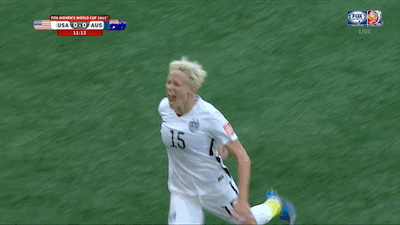
 LIFE IN PLASTICBarbie, Child-Free IconBY SCARLETT HARRISThere's only one thing this doll hasn't done. Why, exactly?  A BARBIE DOLL LOUNGES IN HER PACKAGING. (PHOTO BY DAVID BENITO/GETTY IMAGES) The opening scene of Barbie, the much-anticipated movie event hitting cinemas tomorrow directed by Greta Gerwig and starring Margot Robbie, is a parody of Stanley Kubrick’s 2001: A Space Odyssey. In it, young girls smash their baby dolls in favor of Robbie’s Barbie. Outfitted in the fashion doll’s original get-up of a black-and-white-striped bathing suit, cat-eye sunglasses, and permed bangs, Robbie stands in the center, a glamazon, signaling the dawn of a new woman. Barbie, the doll, was conceived by Ruth Handler, an executive at Mattel, in the 1950s. After observing her daughter, Barbara, for whom Barbie is named, assigning adult roles to her paper dolls, she came up with the idea—and modeled her creation after a doll based on a German comic strip chronicling the life of a sex worker, Bild Lilli. Before Barbie hit the market in 1959, dolls for girls were primarily babies meant to teach their owners the caregiving skills they would inevitably need for lives of housewifery and childrearing. But Barbie brought something new: She represented a wide range of fulfilling lifestyles outside of traditional feminine responsibilities. Barbie could be anything she wanted: an astronaut, an artist, even the President. But, in all these years, she’s never wanted to be a mother. Barbie’s impact has been widely debated, and Barbie leans into this. Is she a feminist icon or nightmare? But one thing cannot be denied: Since her inception, Barbie has been the main character of her own story. She was made to be someone rather than someone’s someone. And in keeping with Barbie tradition, the film’s fantastical Barbieland does away with traditional gender roles. Ken (launched as a boyfriend doll in 1961) lives in service of Barbie, even going so far as to be referenced as “and Ken” in his mugshot—a pure appendage, even if Ken doesn’t have one himself. In a reversal of the biblical creation myth, Ken is spawned from Barbie. “I only exist in the warmth of your gaze,” he says. And, unlike Barbie, he has no occupation—his job is literally described as “beach” in the film. The message was radical for its time: When the doll debuted, there were few images of female breadwinners. Women couldn’t even get a credit card in their own name without permission from a father or husband until 1974, almost twenty years after Barbie had enjoyed financial independence and career achievement in fields such as modeling (her first occupation), nursing (1961), space and aeronautics (1965 and 1966, respectively), surgery (1973) and Olympic gymnastics (1974). All those jobs become even more impressive when you consider that, canonically, Barbie is 19 years old. Maria Teresa Hart, the author of the book Doll, points out that her age at the time of her introduction would have put her on the precipice of two possible paths: marriage and babies or continuing her current lifestyle as a Career Girl with a bevy of friends. “That ambiguity is part of the attraction: she’s at this tipping point where she could make a variety of choices,” says Hart. “Every avenue is open to her.”  MARGOT ROBBIE AT A PRESS JUNKET FOR THE BARBIE MOVIE (PHOTO BY RODIN ECKENROTH/FILMMAGIC) And yet Barbie never travels down the avenue of parenthood, unless you count the amount of time she spent caring for her sisters, Stacey and Chelsea. (If, during your childhood, Barbie’s youngest sister was named Kelly: congratulations, you’re officially old and missed Kelly’s rebrand as Chelsea in 2011.) Barbie’s childlessness was intentional: Handler wanted to show her daughter that fulfillment can exist outside of the home. In the film, her open-plan, multi-story dream house is a dwelling for one—no child safety, no doors. “It’s very definitely a house for a single woman,” production designer Sarah Greenwood told Architectural Digest. Barbie’s other accessories weren’t made with would-be kids in mind, either—the Barbie Porsche convertible I had as a child definitely didn’t have a car seat, and the only baby in sight belonged to the much-maligned Midge, a visibly pregnant doll who was discontinued as Barbie’s bestie in 1967, only to reappear later as Barbie’s married mother friend sans baby bump (though she still angered conservative parents who thought she wasn’t coded strongly enough as a married woman). Documentary filmmaker Therese Schechter, who most recently directed the child-free doco My So-Called Selfish Life, expresses incredulity about Midge’s predicament. “No one has children in that world; why is Midge going to have a baby?” For some, Barbie might still just be a silly doll with an eternally perky and unattainable body. But, as Willa Paskin wrote, Barbie being child-free “remains one of the most radical things about her.” And in a country hell-bent on forcing more and more people to give birth, her childlessness takes on a new and refreshing meaning. As Robbie noted in Vogue, Barbie doesn’t have reproductive organs—which is probably why the elected representatives of Barbieland haven’t tried to police what she does in the Dreamhouse bedroom. Scarlett Harris is a culture critic and author of the book A Diva Was a Female Version of a Wrestler: An Abbreviated Herstory of World Wrestling Entertainment. You can follow her on Twitter @ScarlettEHarris and read her previously published work at her website, The Scarlett Woman.  WEEKEND READSTomorrow is the official premiere of the Barbie movie, so we’ve put together The Ultimate Barbie Reading Guide for everyone who loves—and hates!—the world’s most famous doll.
FOLLOW THE METEOR Thank you for reading The Meteor! Got this from a friend?
|
![]()
Barbie, Child-Free Icon
There's only one thing this doll hasn't done. Why, exactly?
By Scarlett Harris
The opening scene of Barbie, the much-anticipated movie event hitting cinemas tomorrow directed by Greta Gerwig and starring Margot Robbie, is a parody of Stanley Kubrick’s 2001: A Space Odyssey. In it, young girls smash their baby dolls in favor of Robbie’s Barbie. Outfitted in the fashion doll’s original get-up of a black-and-white-striped bathing suit, cat-eye sunglasses, and permed bangs, Robbie stands in the center, a glamazon, signaling the dawn of a new woman.
Barbie, the doll, was conceived by Ruth Handler, an executive at Mattel, in the 1950s. After observing her daughter, Barbara, for whom Barbie is named, assigning adult roles to her paper dolls, she came up with the idea—and modeled her creation after a doll based on a German comic strip chronicling the life of a sex worker, Bild Lilli.
Before Barbie hit the market in 1959, dolls for girls were primarily babies meant to teach their owners the caregiving skills they would inevitably need for lives of housewifery and childrearing. But Barbie brought something new: She represented a wide range of fulfilling lifestyles outside of traditional feminine responsibilities. Barbie could be anything she wanted: an astronaut, an artist, even the President. But, in all these years, she’s never wanted to be a mother.
Barbie’s impact has been widely debated, and Barbie leans into this. Is she a feminist icon or nightmare? But one thing cannot be denied: Since her inception, Barbie has been the main character of her own story. She was made to be someone rather than someone’s someone. And in keeping with Barbie tradition, the film’s fantastical Barbieland does away with traditional gender roles. Ken (launched as a boyfriend doll in 1961) lives in service of Barbie, even going so far as to be referenced as “and Ken” in his mugshot—a pure appendage, even if Ken doesn’t have one himself. In a reversal of the biblical creation myth, Ken is spawned from Barbie. “I only exist in the warmth of your gaze,” he says. And, unlike Barbie, he has no occupation—his job is literally described as “beach” in the film.
The message was radical for its time: When the doll debuted, there were few images of female breadwinners. Women couldn’t even get a credit card in their own name without permission from a father or husband until 1974, almost twenty years after Barbie had enjoyed financial independence and career achievement in fields such as modeling (her first occupation), nursing (1961), space and aeronautics (1965 and 1966, respectively), surgery (1973) and Olympic gymnastics (1974).
All those jobs become even more impressive when you consider that, canonically, Barbie is 19 years old. Maria Teresa Hart, the author of the book Doll, points out that her age at the time of her introduction would have put her on the precipice of two possible paths: marriage and babies or continuing her current lifestyle as a Career Girl with a bevy of friends. “That ambiguity is part of the attraction: she’s at this tipping point where she could make a variety of choices,” says Hart. “Every avenue is open to her.”
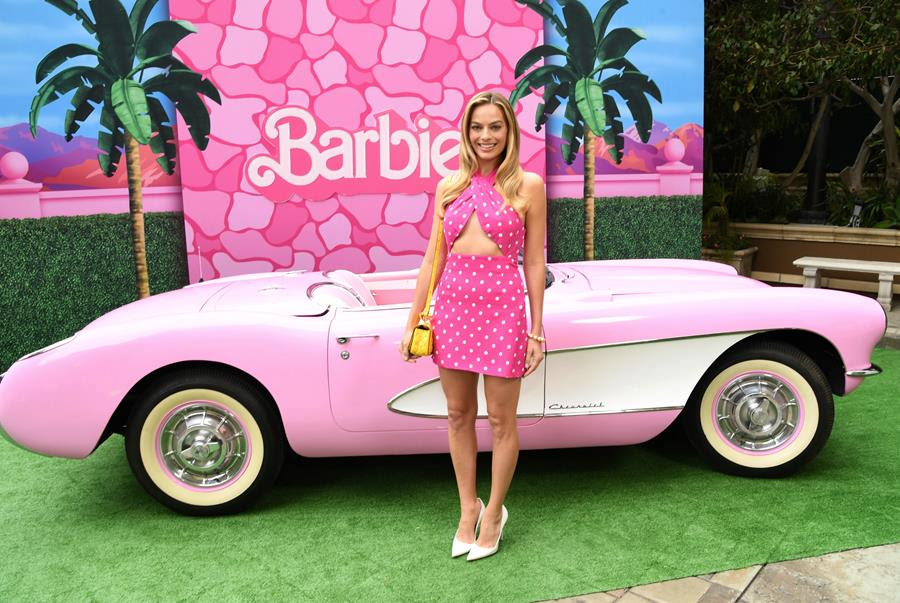
And yet Barbie never travels down the avenue of parenthood, unless you count the amount of time she spent caring for her sisters, Stacey and Chelsea. (If, during your childhood, Barbie’s youngest sister was named Kelly: congratulations, you’re officially old and missed Kelly’s rebrand as Chelsea in 2011.) Barbie’s childlessness was intentional: Handler wanted to show her daughter that fulfillment can exist outside of the home. In the film, her open-plan, multi-story dream house is a dwelling for one—no child safety, no doors. “It’s very definitely a house for a single woman,” production designer Sarah Greenwood told Architectural Digest.
Barbie’s other accessories weren’t made with would-be kids in mind, either—the Barbie Porsche convertible I had as a child definitely didn’t have a car seat, and the only baby in sight belonged to the much-maligned Midge, a visibly pregnant doll who was discontinued as Barbie’s bestie in 1967, only to reappear later as Barbie’s married mother friend sans baby bump (though she still angered conservative parents who thought she wasn’t coded strongly enough as a married woman). Documentary filmmaker Therese Schechter, who most recently directed the child-free doco My So-Called Selfish Life, expresses incredulity about Midge’s predicament. “No one has children in that world; why is Midge going to have a baby?”
For some, Barbie might still just be a silly doll with an eternally perky and unattainable body. But, as Willa Paskin wrote, Barbie being child-free “remains one of the most radical things about her.” And in a country hell-bent on forcing more and more people to give birth, her childlessness takes on a new and refreshing meaning. As Robbie noted in Vogue, Barbie doesn’t have reproductive organs—which is probably why the elected representatives of Barbieland haven’t tried to police what she does in the Dreamhouse bedroom.
Scarlett Harris is a culture critic and author of the book A Diva Was a Female Version of a Wrestler: An Abbreviated Herstory of World Wrestling Entertainment. You can follow her on Twitter @ScarlettEHarris and read her previously published work at her website, The Scarlett Woman.
What the Hollywood strike means for labor
 July 18, 2023 Hello hello, Meteor readers, As you may be acutely aware right now: We’re currently having the hottest summer of all time. In fact, yesterday was the hottest day the entire Northern Hemisphere has had in recorded history. (Mondays, am I right?)  In today’s newsletter, we’re looking at what the joint writer's/actor's strike means for the rest of us, as well as the largest oral history of activism from young girls. Cranking that fan, Bailey Wayne Hundl  WHAT'S GOING ONHot labor summer, cont.: The Writers Guild of America (WGA), representing more than 11,000 film and TV writers, has been on strike since May 2. And last Thursday, July 13, those writers were joined by the 160,000 members of the Screen Actors Guild (known as SAG-AFTRA). That’s right: Hollywood is looking at a double strike for the first time in 63 years. No Teds will be Lassoed and no Things will be Strangered—not until the networks are willing to negotiate with their workers (and not just kill trees to deny them shade). It could be easy to write off the actors’ strike as symbolic as actors are already mega-rich. But that is not so, hypothetical dissident! Michelle Hurd, vice president of SAG-AFTRA’s Los Angeles chapter, says that the number of SAG-AFTRA members who do not have consistent work has risen to 98 percent. “There’s a perception out there that everyone is doing great, that this career choice is lucrative for everyone, when that’s just not true,” Hurd told actor/writer Amber Tamblyn last weekend. “In reality, most SAG members are worried about making rent, let alone buying a home.” In order to make the rent between jobs, actors and writers rely on residuals, recurring payments based on a share of the profits earned by a particular TV show or movie—or at least, that’s how it works in theory. Historically, this led to even minor actors on major hit films and television shows receiving reasonable residuals for years after their projects had wrapped. But things look different in the streaming era. For example, Kimiko Glenn, who played Brook Soso in one of the first big streaming hits on Netflix, “Orange is the New Black,” shared one of her recent residual statements on TikTok; for all 44 episodes she appeared in, her residual compensation was $27.30. For comparison, Ben Haist, who appeared for two minutes as a background actor in 2011’s “Pitch Perfect,” shared that he still receives a residual check for $200-300 per quarter. In other words, the economics have become more challenging for workers in this industry. But that’s before the rise of AI, which threatens to make things worse: SAG-AFTRA Chief Negotiator Duncan Crabtree-Ireland shared that during negotiations, the networks proposed “that background actors should be able to be scanned, get paid for one day’s pay, and their company should own that scan...to be able to use it for the rest of eternity.” This would, presumably, include generating new scenes based on that character’s likeness—all for a paycheck of less than $200. All of this is just part of the reason these strikes matter to all of us, whether or not you’ve got anything to do with the entertainment industry. For one thing, the arts are a necessary part of a healthy and functioning society. (What would the pandemic have been without streaming TV?) But also, at a time when tensions around AI in the workplace are already rising, the writer’s/actor’s strike could be a watershed moment for all workers’ equity, one that lets employers know that employees deserve—and will demand—compensation for the labor that makes AI systems work. Studio executives have already claimed that their plan is to wait until union members “start losing their apartments and losing their houses.” If you’d like to keep that from happening, you can donate to the Entertainment Community Fund to keep striking workers afloat. Let’s hear it for the girls: An important report just dropped from UN Women at the Women Deliver conference in Rwanda—and the findings are jarring. Of the 114 countries surveyed, researchers found that not one had achieved true gender parity. What’s worse: Less than 1 percent of women and girls around the world live in a country with high women’s empowerment or a reduced gender gap—and on average, women only reach 60% of their potential in crucial categories like health, education, decision-making, and freedom from violence. (So maybe we can drop the idea that the fight for gender equality has gone too far, hm?)  If you need a shot of hope after reading this, you might consider looking at the next generation of girls, who are increasingly vocal and visible right now—as you know if you spotted a picture of Greta Thunberg flipping off members of the European Parliament in your Instagram feed last weekend. Now this powerful and passionate demographic have a history book of their own: The largest-ever oral history of girls’ activism comes out this week, and it was feted Sunday by Malala in Kigali, Rwanda. Stories of Girls’ Resistance chronicles 150 activists from 90 countries—from Mamta in Fiji, who resisted arranged marriage (“stop marrying me off!” she exclaims), to Naomi in Kenya, who joined a strike on behalf of political prisoners when she was 17. The book is timely: “At a moment when we are seeing rising authoritarianism and attacks on human rights across the world,” co-author Jody Myrum and creative strategist Laura Vergara told the Meteor, “we need to invest in [girls’] resistance more than ever—both because girls’ rights are deeply under attack and because they hold the vision, strategies, and tactics to lead us to our collective liberation.” And—like Mattie Kahn, whose new book Young and Restless warns of the dangers of glamorizing young female leaders as singular figures without supporting them more meaningfully—the oral history sends a message that celebrating girls’ heroism isn’t enough. “Girls do not need any more ‘fame,’ ” said Myrum and Vergara, “but rather clear accountability and support for their work…They need to be meaningfully funded rather than treated as beneficiaries. Specifically for funders – it is time to take girls’ resistance seriously. Move significant resources directly to girls, not thousands but billions.” AND:
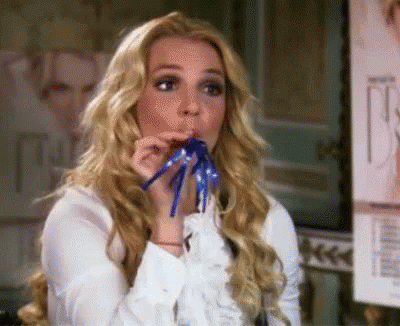  FOLLOW THE METEOR Thank you for reading The Meteor! Got this from a friend?
|
![]()
A historic day for the pill
 July 13, 2023 Hello again, Meteor readers, We are officially less than ten days away from the Barbie movie opening, and I don’t know about you, but I’m stoked. My boyfriend and I got matching outfits for the premiere, and today’s newsletter will actually be a 50,000-word essay unpacking the feminist significance of everyone’s favorite plastic doll. 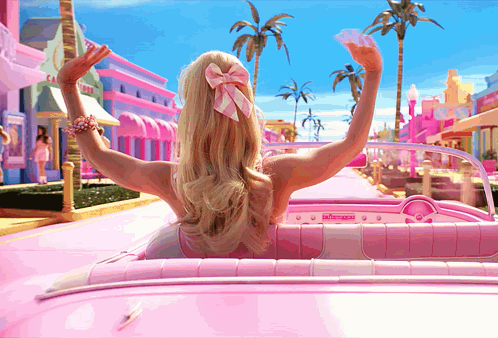 Kidding! Today’s newsletter actually features a monumental step forward for reproductive rights, studio executives exhibiting “Christmas Carol” levels of villainy, trans people winning (what else is new?), and Justice Clarence Thomas’ latest ethics issues. Trying on every shade of pink I can find, Bailey Wayne Hundl  WHAT'S GOING ONA huge birth-control victory: For the first time ever, the FDA has approved a birth control pill for all-ages use without a prescription. Opill, a progestin-only pill to be taken once daily, is set to be available for over-the-counter purchase by early 2024, according to Perrigo, the pill’s manufacturer. How did this feel for contraceptive experts? “Like Christmas!” said Dr. Heather Irobunda, an OB-GYN and one of the founders of Obstetricians for Reproductive Justice. “I’m very happy this happened. It’s an important step in destigmatizing reproductive health meds.” And it’s hardly a radical step: Birth control pills are already sold over-the-counter in over 100 other countries. But this victory serves as a powerful message that birth control is safe and popular—at a time when conservatives are beginning to target contraception, both culturally and politically. As the director of the FDA's Center for Drug Evaluation and Research, Dr. Patrizia Cavazzoni, pointed out, Opill is “safe and is expected to be more effective than currently available nonprescription contraceptive methods.” This decision does, however, raise questions we don’t yet have answers to:
And putting the pill—varieties of which have been safely used for five decades—on store shelves makes sense, says Dr. Irobunda. Keeping it prescription-only, she notes, signaled that “they didn’t trust us to know how to take it. This is a safe drug and can be easily managed, but ‘behind the counter’ made it something that we needed to consult with someone ‘who knows our bodies better’” in order to take. But as reproductive rights advocates have been saying this whole time, who knows our bodies better than us? AND:

 WEEKEND READSOn abortion rights: Last election cycle, all six states with abortion on the ballot scored a win for abortion access. This cycle’s game plan: Do it again, but even better. On (un)fair pay: “Orange is the New Black” was huge for Netflix—so why wasn’t it huge for all the people who worked on it? On positive masculinity: Toxic male gender roles can be like quicksand for young men. But there’s a way out. On “doing the work”: The Meteor’s Samhita Mukhopadhyay explores how social justice organizations can be as active in supporting their staffs as they are in supporting their causes.  FOLLOW THE METEOR Thank you for reading The Meteor! Got this from a friend?
|
![]()
The cops are sliding into your DMs
 July 11, 2023 High vibrations, Meteor readers, It’s 7/11! All my numerology girlies just nodded while the rest of you are wondering why I feel the need to state the date. But ~mystically speaking~ when those two numbers appear together, they become a powerful and affirming “angel number,” which numerologists say can serve as a reminder to move forward within your intuition and a sign that the universe is open to providing you with new opportunities.  Meanwhile, here on earth: we’ve got a troubling update on a Nebraska abortion case, an AI lawsuit, and a fond almost-farewell to Megan Rapinoe. Reading the stars, Shannon Melero  WHAT'S GOING ONPrivacy: Last week, a mother in Nebraska pled guilty to helping her daughter obtain an illegal abortion and discard the fetus after it was expelled. Now Jessica Burgess and her daughter Celeste, 18, are both looking at jail time for their actions. You may remember Jessica and Celeste’s case from last August, shortly after the overturn of Roe v Wade, when charges were first filed against them. What made the case unique was not simply the fact that two women were going to be tried for acquiring and using abortion pills in a state where it was newly illegal—but also the questions the case raised about data privacy. A refresher: After Celeste found out she was pregnant, she and her mother communicated via Facebook messages and came up with a plan to end the pregnancy and discard the fetus so as not to leave behind any evidence. Because Celeste was already 20 weeks pregnant and Nebraska bans abortion after 12 weeks gestation, the two knew they could not go to a medical provider to do any of this—hence the secrecy. They thought the messages they shared about the ordeal were private. But Facebook’s parent company, Meta, turned over their correspondence to the police after being served with a search warrant (pertaining to a different investigation)—and the police had what they needed to charge the mother and daughter. The case was among the first to highlight just how vulnerable abortion seekers, many of whom rely heavily on online searches for care, had become in the immediate aftermath of Dobbs. As Shamira Ibrahim wrote for The Meteor last year, apps that use location data and cookie tracking “help law enforcement investigate and prosecute abortion-seekers and their respective networks of support.” That’s exactly what happened in the Nebraska case. Now the women face up to two years in prison, and a man who helped them bury the fetus was also charged and given probation. If you or someone you know lives in an abortion-ban state and needs care, Ibrahim suggests visiting the Digital Defense Fund, which provides steps for protecting your abortion-related data privacy—from Facebook, the phone company, and anyone else you don’t want to know your business. AND:
  FOLLOW THE METEOR Thank you for reading The Meteor! Got this from a friend?
|
![]()





